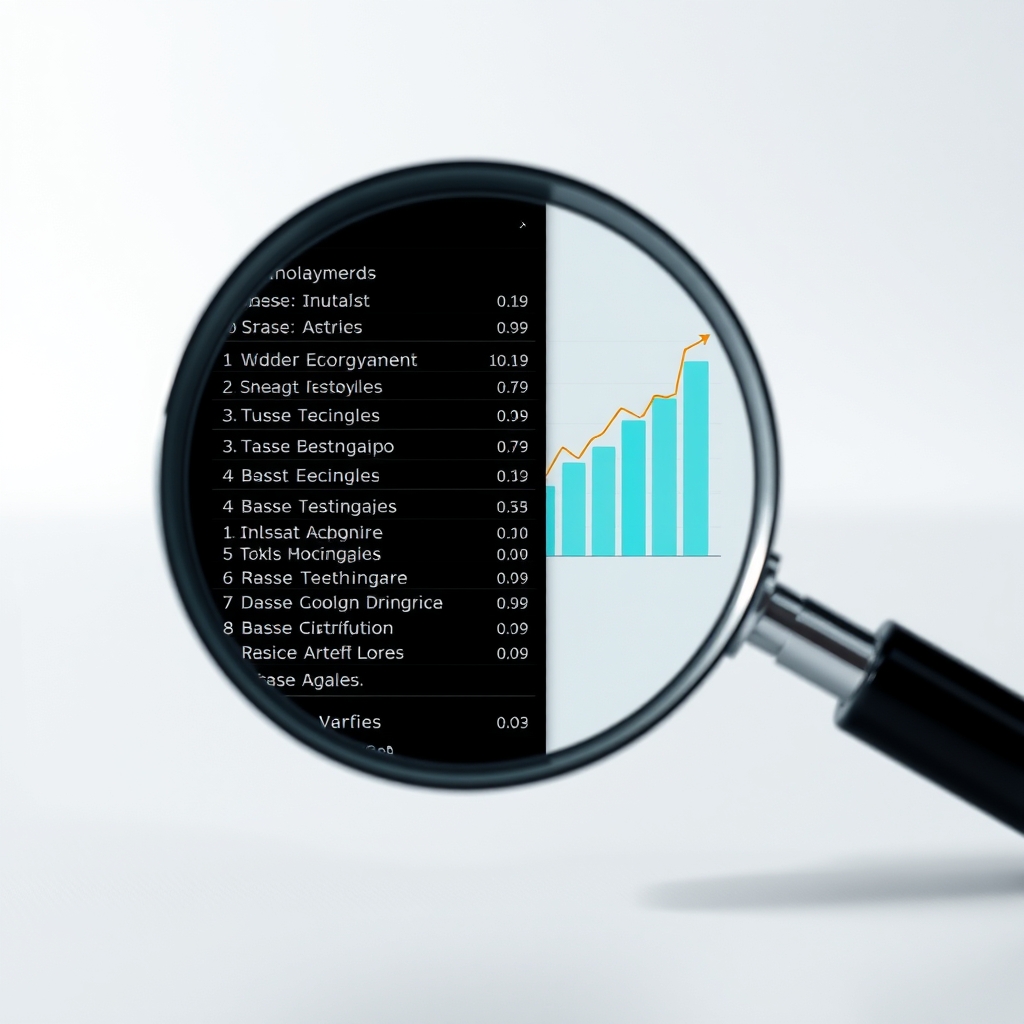SEO Keyword Analytics API vs Website Analytics API: What to Choose?

In the ever-evolving landscape of digital marketing and web development, the choice between an SEO Keyword Analytics API and a Website Analytics API can significantly impact your strategies and outcomes. Both APIs offer unique capabilities that cater to different aspects of online performance analysis. This blog post delves into a detailed comparison of these two powerful tools, helping you make an informed decision based on your specific needs.
Overview of Both APIs
The SEO Keyword Analytics API is designed to enhance content and advertising campaigns through data-driven insights. It provides critical metrics such as keyword volume, competition, and cost-per-click (CPC) analysis, all tailored for SEO success. This API allows businesses to refine their SEO and advertising strategies with precise data, supporting various industries and geographies.
On the other hand, the Website Analytics API offers valuable web analytics insights that enable data-driven decisions, competitive analysis, and audience targeting. It provides comprehensive data on website performance, including traffic statistics and user engagement metrics, allowing users to assess how their websites are performing in the digital landscape.
Side-by-Side Feature Comparison
SEO Keyword Analytics API Features
The SEO Keyword Analytics API boasts several key features:
Keyword Overview
This feature allows users to send a GET request with the keyword parameter to receive detailed keyword metrics, including volume, CPC, and competition data. This is crucial for marketers looking to optimize their content and ad campaigns.
{"Global Keyword Data":[{"High CPC":"$0.07","Low CPC":"$0.01","avg_monthly_searches":338000000,"competition_index":3,"competition_value":"LOW","keyword":"chatgpt","monthly_search_volumes":[{"month":"DECEMBER","searches":226000000,"year":2023},{"month":"JANUARY","searches":226000000,"year":2024},{"month":"FEBRUARY","searches":226000000,"year":2024},{"month":"MARCH","searches":277000000,"year":2024},{"month":"APRIL","searches":277000000,"year":2024},{"month":"MAY","searches":338000000,"year":2024},{"month":"JUNE","searches":277000000,"year":2024},{"month":"JULY","searches":226000000,"year":2024},{"month":"AUGUST","searches":338000000,"year":2024},{"month":"SEPTEMBER","searches":506000000,"year":2024},{"month":"OCTOBER","searches":618000000,"year":2024},{"month":"NOVEMBER","searches":618000000,"year":2024}]}],"Related Keyword Data (Global)":[{"High CPC":"$0.13","Low CPC":"$0.01","avg_monthly_searches":165000,"competition_index":21,"competition_value":"LOW","keyword":"chat gpt app","monthly_search_volumes":[{"month":"DECEMBER","searches":100000,"year":2023}]}]}Data Customization
Users can customize their data requests by specifying different keywords and using additional parameters to filter results based on geographic location or specific time frames. This enhances the relevance of the data provided.
Data Sources
The API sources its data from a combination of search engine metrics, user behavior analytics, and competitive analysis tools, ensuring a comprehensive view of keyword performance and trends.
Website Analytics API Features
The Website Analytics API also offers several key features:
Analyze Web
This feature requires users to indicate the URL of a website in the parameter to gather insights into website performance. It provides traffic statistics, user engagement metrics, and competitive rankings.
{"Version":1,"SiteName":"zoom.us","Description":"modernize workflows with zoom's trusted collaboration tools: including video meetings, team chat, voip phone, webinars, whiteboard, contact center, and events.","TopCountryShares":[{"Country":840,"CountryCode":"US","Value":0.40024009238067315},{"Country":392,"CountryCode":"JP","Value":0.07988013959719431},{"Country":356,"CountryCode":"IN","Value":0.03947243437762593},{"Country":124,"CountryCode":"CA","Value":0.03681420718365394},{"Country":826,"CountryCode":"GB","Value":0.0344896390013618}],"Title":"one platform to connect | zoom","Engagments":{"BounceRate":"0.33697827657038026","Month":"9","Year":"2024","PagePerVisit":"3.094191274713083","Visits":"645407983","TimeOnSite":"231.61869625036334"},"EstimatedMonthlyVisits":{"2024-07-01":606947079,"2024-08-01":590308641,"2024-09-01":645407983},"GlobalRank":{"Rank":71},"CountryRank":{"Country":840,"CountryCode":"US","Rank":48},"CategoryRank":{"Rank":"3","Category":"Computers_Electronics_and_Technology"}}Data Sources
The data is sourced from a combination of web traffic analysis tools, user engagement metrics, and competitive analysis databases, ensuring a comprehensive view of website performance.
Example Use Cases for Each API
SEO Keyword Analytics API Use Cases
The SEO Keyword Analytics API is ideal for:
- Content Optimization: Marketers can use keyword data to create content that aligns with user search intent, improving organic traffic.
- Ad Campaign Management: By analyzing CPC and competition, businesses can allocate budgets more effectively for paid campaigns.
- Market Research: Understanding keyword trends helps businesses identify new opportunities and threats in their industry.
Website Analytics API Use Cases
The Website Analytics API is suitable for:
- Performance Monitoring: Businesses can track website performance metrics to ensure optimal user experience.
- Competitive Analysis: By comparing their website metrics against competitors, businesses can identify areas for improvement.
- Audience Targeting: Understanding visitor demographics and behavior allows for more targeted marketing strategies.
Performance and Scalability Analysis
When considering performance and scalability, both APIs have strengths that cater to different needs. The SEO Keyword Analytics API is designed to handle large volumes of keyword data efficiently, making it suitable for businesses with extensive keyword portfolios. Its ability to provide localized data enhances its scalability across different markets.
Conversely, the Website Analytics API excels in delivering real-time insights into website performance. It can process large datasets quickly, allowing businesses to make timely decisions based on current traffic and engagement metrics. This API is particularly beneficial for companies that require immediate feedback on their digital strategies.
Pros and Cons of Each API
SEO Keyword Analytics API
Pros:
- Comprehensive keyword data for SEO and PPC strategies.
- Localized keyword insights enhance relevance.
- Easy integration with existing marketing tools.
Cons:
- May require additional tools for full SEO analysis.
- Data accuracy can vary based on the source.
Website Analytics API
Pros:
- In-depth insights into website performance and user engagement.
- Facilitates competitive analysis effectively.
- Real-time data allows for quick decision-making.
Cons:
- Limited to web analytics; does not provide keyword-specific insights.
- Data interpretation may require additional expertise.
Final Recommendation
Choosing between the SEO Keyword Analytics API and the Website Analytics API ultimately depends on your specific needs:
- If your primary focus is on optimizing content and ad campaigns through keyword analysis, the SEO Keyword Analytics API is the better choice.
- For businesses looking to monitor website performance and user engagement, the Website Analytics API provides the necessary insights.
- In scenarios where both keyword and website performance data are crucial, consider integrating both APIs to leverage their strengths.
Conclusion
In conclusion, both the SEO Keyword Analytics API and the Website Analytics API offer valuable insights that can enhance your digital marketing strategies. By understanding their features, use cases, and performance capabilities, you can make an informed decision that aligns with your business objectives. Whether you prioritize keyword analysis or website performance, these APIs provide the tools necessary for success in the digital landscape.





